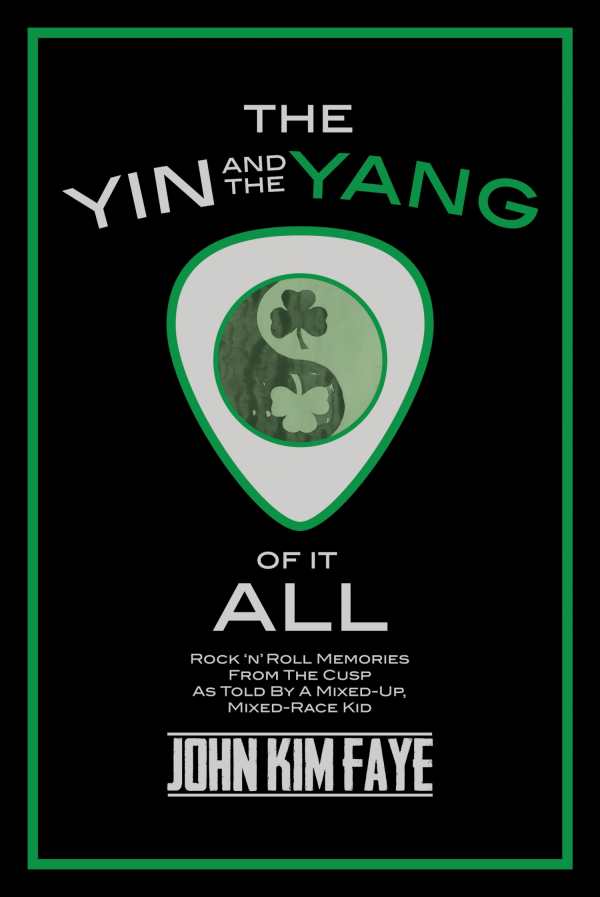The Yin and the Yang of It All
Rock'n'Roll Memories from the Cusp as Told by a Mixed-Up, Mixed-Race Kid
The Yin and the Yang of It All is an energetic musician’s memoir about the acceptance of one’s origins.
John Kim Faye’s memoir The Yin and the Yang of it All chronicles his long, lasting relationships with music and his mother.
The youngest of four children and his family’s only son, Faye grew up in Delaware. His father died when he was six, though this fact was concealed from him at first. His mother, a Korean immigrant, raised the children alone while working as a psychiatric doctor. Her taciturn stoicism motivated Faye to find his own voice. He was known at school for making up words. He formed bands and wrote parodies of popular songs.
Through high school and college, Faye thrived on performing. He enjoyed the chaos of rock and roll and stalled when it came to settling down and starting a family. In the 1990s, a fateful tour sealed the dissolution of his band, the Caulfields. Personal losses followed. In the wake of his difficulties, Faye yearned to keep performing “little sonic diamonds of delusion.” He also wrote letters to his deceased mother, expressing ideas that they never addressed to his satisfaction in person. These celebrate her compassion, understanding, and honesty, revealing that she was his most cherished audience member.
With lyric-titled chapters that are organized in a way that mimes the choruses of songs (focused on single ideas and sensations), the book is at first impressionistic, moving through memories of childhood traumas and friendships. It pays attention to dramatic details, like speeding in the car to visit Faye’s father’s cemetery plot and to the record store for his first purchase with his own money. Later, its obsession with the dopamine represented in melodies and lyrics mounts. But the arc of the chapters also resembles an album, with the catchiest stories shared first, followed by serious, heady material. There are quotes from pivotal conversations with Faye’s bandmates and friends.
Still, the book’s focus on music is reflective of its execution: often, Faye knows, songs elicit feelings that words themselves cannot. The book strains to describe how music gave Faye a voice, and that struggle takes on a life of its own. His band’s dissolution is a quiet but climactic moment in the text, coming on the heels of a raucous tour full of fights between band members and comedic and tragic mishaps. Quotes from the text are pulled out into the margins; these become redundant, repeating chapter titles and conclusive final sentences and muddling the book’s format.
The Yin and the Yang of It All is an energetic musician’s memoir by a man seeking reconciliation with his origins.
Reviewed by
Mari Carlson
Disclosure: This article is not an endorsement, but a review. The publisher of this book provided free copies of the book and paid a small fee to have their book reviewed by a professional reviewer. Foreword Reviews and Clarion Reviews make no guarantee that the publisher will receive a positive review. Foreword Magazine, Inc. is disclosing this in accordance with the Federal Trade Commission’s 16 CFR, Part 255.

